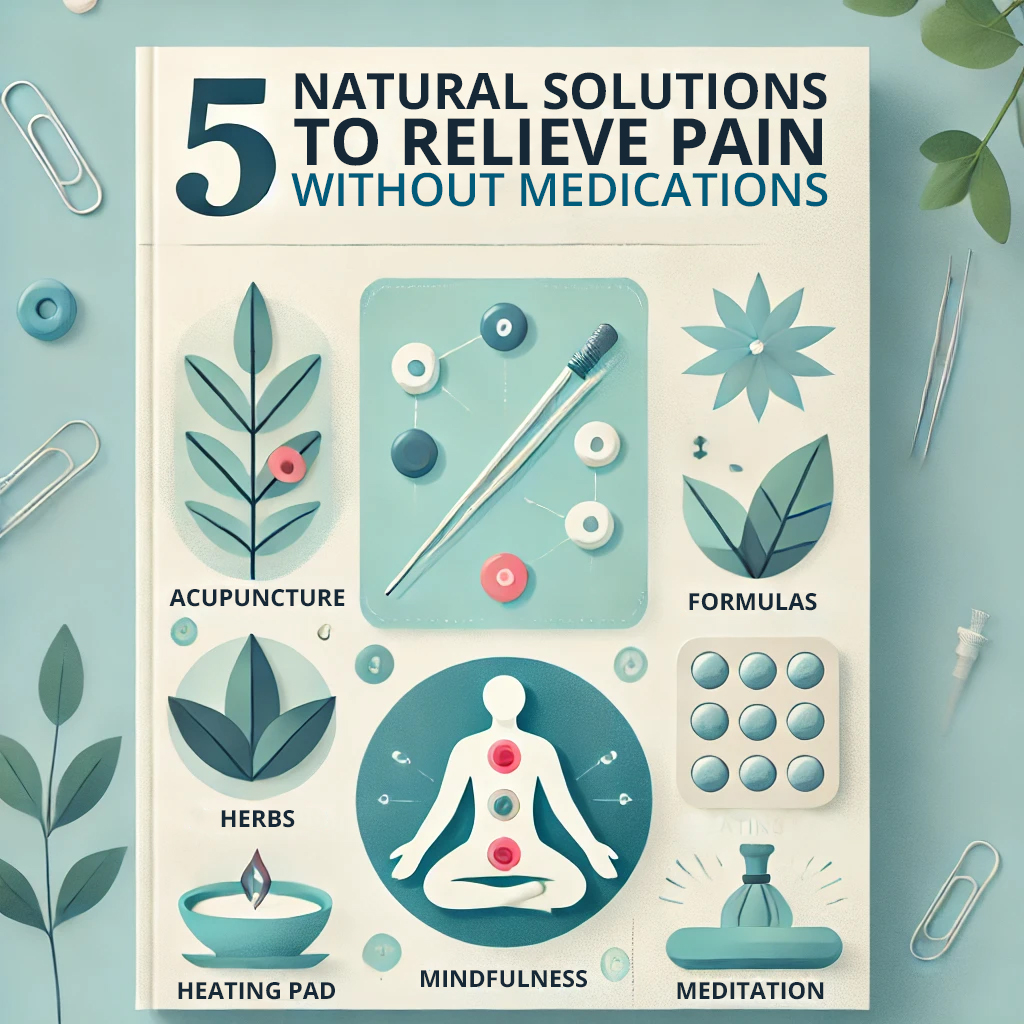As you seek relief from plantar fasciitis in St. Petersburg, you’ll discover that natural remedies like soaking your feet in warm apple cider vinegar and massaging with warm mustard oil can reduce pain and inflammation. Strengthening your foot muscles through exercises like toe curls can also help alleviate symptoms. Meanwhile, diet changes incorporating turmeric and ginger can provide anti-inflammatory benefits. By exploring alternative treatments like acupuncture and chiropractic care, and adopting preventive measures like regular stretching and proper footwear, you’ll find a holistic approach to easing foot pain and regaining your active lifestyle – and that’s just the beginning of your journey.
Key Takeaways
- Soaking feet in warm apple cider vinegar reduces pain and absorbs nutrients, providing natural relief from plantar fasciitis symptoms.
- Massaging soles with warm mustard oil enhances blood flow and relaxation, easing foot pain and inflammation.
- Incorporating turmeric and ginger into your diet helps alleviate pain and inflammation, reducing symptoms of plantar fasciitis.
- Strengthening foot muscles through exercises like picking up marbles with toes can help prevent future occurrences of plantar fasciitis.
- Wearing supportive footwear with adequate arch support and maintaining a healthy weight can prevent plantar fasciitis and reduce symptoms.
Understanding Plantar Fasciitis
As you stand, walk, or run, the plantar fascia, a strong band of tissue connecting your heel to your toes, works tirelessly to support your every move. However, when this band becomes inflamed, you may experience plantar fasciitis, a common cause of heel pain. This condition often arises from overuse, excessive stretching, or injury, and is more prevalent in individuals aged 40-60, those who are obese, and those with occupations that require prolonged standing. Curiously, acupuncture has been recognized by the World Health Organization (WHO) for treating various conditions, including pain ancient Chinese practice, which may be beneficial in managing heel pain. Symptoms of plantar fasciitis typically include sharp pain in the heel or arch of the foot, particularly noticeable during the first steps in the morning or after periods of inactivity. To diagnose plantar fasciitis, doctors may conduct physical examinations and imaging tests like X-rays or MRIs to rule out other conditions such as heel spurs or Achilles tendonitis. Most cases of plantar fasciitis resolve with conservative treatment methods, including rest, ice application, stretching exercises, and supportive footwear. By understanding the causes and symptoms of plantar fasciitis, you can take the first steps towards finding effective treatment for heel pain and promoting overall foot health.
Natural Remedies for Pain Relief
You’ve taken the first steps towards understanding plantar fasciitis, now it’s time to explore natural remedies that can provide relief from heel pain. As you seek to alleviate your discomfort, you’ll find that incorporating these holistic approaches into your daily routine can make a significant difference. In addition to these remedies, a holistic approach that addresses underlying causes of illness instead of merely masking symptoms Traditional Chinese Medicine can be particularly effective. By stimulating the body’s innate healing abilities, you can experience fewer side effects and promote overall well-being. Start by soaking your feet in a warm apple cider vinegar mixture for 30 minutes to absorb nutrients like magnesium and reduce pain. Next, massage your soles and heels with warm mustard oil to enhance blood flow and relaxation. You can also strengthen your foot muscles by picking up marbles with your toes, improving stabilization and gait mechanics. Another effective remedy is applying softened cabbage leaves to reduce inflammation, thanks to the presence of anthocyanin. Additionally, consider incorporating herbal treatments like turmeric and ginger to reduce inflammation and alleviate pain associated with plantar fasciitis. By incorporating these natural remedies into your treatment plan, you can reduce pain and inflammation, promoting overall foot health and wellbeing.
Causes and Triggers of Pain
Your plantar fascia is subjected to repetitive stress and strain daily, making it prone to inflammation and pain. As you navigate your daily routine, you may unintentionally trigger plantar fasciitis. In fact, poor posture and mobile device usage can contribute to chronic strain on the plantar fascia, similar to how they can cause neck pain Understanding Neck Pain Causes.
- Overuse from activities like running, prolonged standing, or wearing improper footwear on hard surfaces can cause plantar fasciitis.
- Health conditions like flat feet, high arches, and obesity increase the risk of developing plantar fasciitis due to altered foot mechanics and added stress on the plantar fascia.
- Age is a contributing factor, with most cases occurring in individuals aged 40 to 60, as the plantar fascia loses elasticity and resilience over time.
- Repetitive stress on the plantar fascia from high-impact sports or occupations requiring extended periods of standing leads to inflammation and pain.
- Lack of proper foot support, such as inadequate cushioning or arch support in shoes, exacerbates symptoms and can lead to chronic plantar fasciitis.
Understanding these causes and triggers empowers you to make lifestyle changes and take preventative measures to reduce your risk of developing plantar fasciitis. By incorporating proper support and making conscious choices, you can reduce your likelihood of experiencing pain and discomfort.
Alternative Medicine Treatment Options
While conventional treatments often focus on relieving pain, alternative medicine offers a more holistic approach to managing plantar fasciitis, targeting the underlying causes of discomfort and promoting overall foot health. In fact, holistic approaches like acupuncture can help restore balance in the body’s natural rhythms, similar to acupuncture for insomnia, leading to a more thorough treatment plan. You can explore various alternative medicine treatment options to find relief from foot pain. Acupuncture, for instance, has been shown to reduce pain and improve function in some patients. Chiropractic care can help realign the foot and ankle, potentially alleviating pressure on the plantar fascia and enhancing overall foot mechanics. Herbal remedies, such as turmeric and ginger, possess anti-inflammatory properties that can aid in reducing pain and swelling associated with plantar fasciitis. Massage therapy, particularly focusing on the foot and calf muscles, can improve circulation and relieve tension in the plantar fascia, offering a natural approach to pain relief. By incorporating these alternative medicine treatments into your care plan, you can experience a more thorough approach to managing plantar fasciitis and promoting long-term foot health.
Preventing Future Occurrences
To prevent future occurrences of plantar fasciitis, it’s essential to take proactive steps, as neglecting foot health can lead to recurring pain and discomfort. By incorporating simple habits into your daily routine, you can reduce the risk of re-injury and maintain ideal foot health. Regular acupuncture sessions can also aid in overall wellness, much like how it supports treatment of acid reflux and promotes overall gut health through improved blood circulation, which can have a positive impact on your foot health.
- Regularly perform stretching exercises for the calves and plantar fascia to improve flexibility and reduce tension in the foot.
- Maintain a healthy weight to decrease pressure on the plantar fascia, as obesity is a significant risk factor for developing plantar fasciitis.
- Invest in supportive footwear that provides adequate arch support and cushioning, and replace worn-out shoes to enhance foot mechanics and prevent injury.
- Engage in low-impact exercises, such as swimming or cycling, to maintain fitness while minimizing stress on the feet.
- Incorporate proper warm-up and cool-down routines into exercise regimens to prevent overuse injuries and allow the plantar fascia to adjust gradually to physical demands.
Frequently Asked Questions
How Do I Fix My Foot Pain and Plantar Fasciitis Naturally?
You can fix your foot pain and plantar fasciitis naturally by resting, stretching, icing, and exercising your feet, while incorporating holistic approaches like apple cider vinegar soaks, mustard oil massages, and cabbage leaf wraps to reduce inflammation and promote overall foot health.
How to Stop Foot Pain From Plantar Fasciitis?
As you navigate the dark forest of foot pain, remember that rest is your trusted guide, shining a light on the path to healing. By incorporating ice, stretches, and supportive footwear, you’ll stop foot pain from plantar fasciitis in its tracks.
What Can I Rub on My Foot for Plantar Fasciitis?
You can rub warm mustard oil, aloe vera, or turmeric onto your foot to alleviate plantar fasciitis pain, as these natural remedies possess anti-inflammatory properties that target and reduce discomfort, promoting relaxation and recovery.
What Vitamin Deficiency Causes Plantar Fasciitis?
You’re likely wondering if a specific vitamin deficiency is causing your plantar fasciitis. Well, research suggests that deficiencies in Vitamins D, C, and B12, as well as magnesium, can contribute to the development and exacerbation of this condition.
Conclusion
By embracing these natural remedies and holistic approaches, you’re not just treating your plantar fasciitis – you’re giving your feet a chance to rediscover their carefree stride. As you bid farewell to chronic pain, you’re opening the door to a life filled with vibrant walks, tranquil hikes, and effortless strolls through the streets of St. Petersburg. By taking control of your foot health, you’re reclaiming your freedom to live life to the fullest.
Achieve Lasting Wellness
At Elite Care Acupuncture & Alternative Medicine, we focus on helping you reach your health goals with personalized, holistic care. Whether you’re dealing with chronic pain, stress, or exploring natural healthcare options, our dedicated team is here to guide you.
Connect with Us:
Address:
1105 7th Avenue North, Saint Petersburg, FL 33705
Phone: +1 (727) 606-8700
Website: www.EliteCare.clinic



